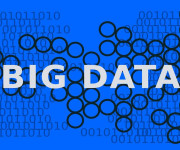5 Big Data Hadoop Use Cases for Retail

Now, Apache Hadoop provides the necessary technology and data pipeline for analyzing customers as individuals and creating individual marketing campaigns accordingly. Rather than guessing, gambling, and hoping campaigns succeed, businesses can make observations on retail data and focus on the individual shopper. Not only does this reduce the amount of time spent researching; it can lower marketing budgets significantly and allows ads to reach the right people.
Components of Retail Analytics
It’s not just about ad campaigns. There are a vast number of applications that can be built using Hadoop, from analyzing the customer to analyzing the brand, five of the most common of which are detailed below.
1. Build a Comprehensive View of the Customer
There are many ways retailers interact with customers (social media, store newsletters, in-store, etc.), but customer behavior is almost completely unpredictable without Hadoop. Hadoop is able to store and correlate transaction data and online browsing behavior, which allows businesses to identify phases of the customer lifecycle to better increase sales, reduce inventory expenses, and build a loyal customer base.
2. Gauge Brand Sentiment
Internal brand studies can be slow, expensive, and flawed. With Hadoop, companies are able to gain an unbiased perspective on customers’ opinions of the brand as affected by product launches, advertising, competitor moves, news stories, and even in-store experiences.
Hadoop scans social media (like Facebook, Twitter, or LinkedIn), browser searches, and other industry-specific social media for related keywords to provide real-time snapshots of customer satisfaction and perception of the brand. By better understanding general customer opinions, retailers can align their consumer outreach, products, and promotions.
3. Localize and Personalize Promotions
Hadoop is a game changing platform that can combine both historical storage and real-time streaming data to allow retailers to localize and personalize their promotions. Retailers with mobile apps can send app users personalized push notifications based on geo-location so that customers near a store will be notified of a promotion or specific product that would appeal to them. Access to online search history and geographic location are also helpful in promoting advertisements in the feeds of customers’ social media pages.
4. Optimize Websites
Clickstream data is an important part of big data marketing: it tells retailers what customers click on and purchase (or don’t purchase). However, storage for viewing and analyzing these insights on other databases is expensive, or they just don’t have the capacity for all of the data exhaust. Apache Hadoop is able to store all the web logs and data for years, and at low cost allowing retailers to understand user paths, do basket analysis, run A/B tests, and prioritize site updates, thus improving customer conversion and revenue.
5. Redesign Store Layouts
The customer in-store experience is the hardest for retailers to analyze because there is no data available for their pre-checkout behavior. However, it is a known fact that store layouts have a significant impact on product sales, so sensors (such as RFID tags and QR codes) have been developed to help fill the gap in data. They store a lot of information through Hadoop that, once analyzed, can help retailers optimize the store layout and improve the in-store experience, all while reducing costs.
How Does Apache Hadoop Help Retailers?
Apache Hadoop is not just a data storage and processing framework – it is an transformational platform, especially for retailers who want to analyze customer data and improve revenues and the general customer experience.
Start putting Hadoop to work for your retail business! Download The Executive Guide to Big Data and Apache Hadoop to learn more. Source























